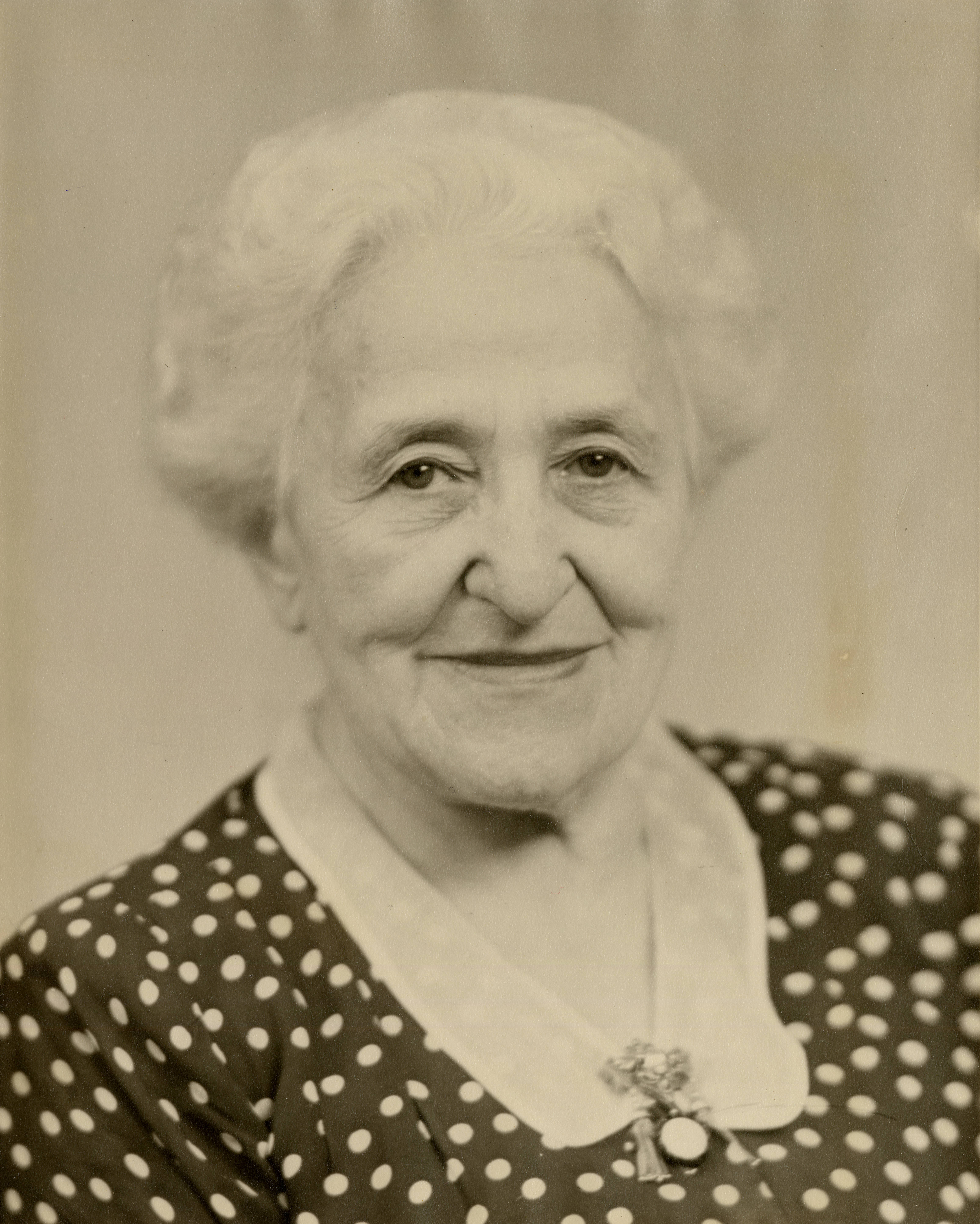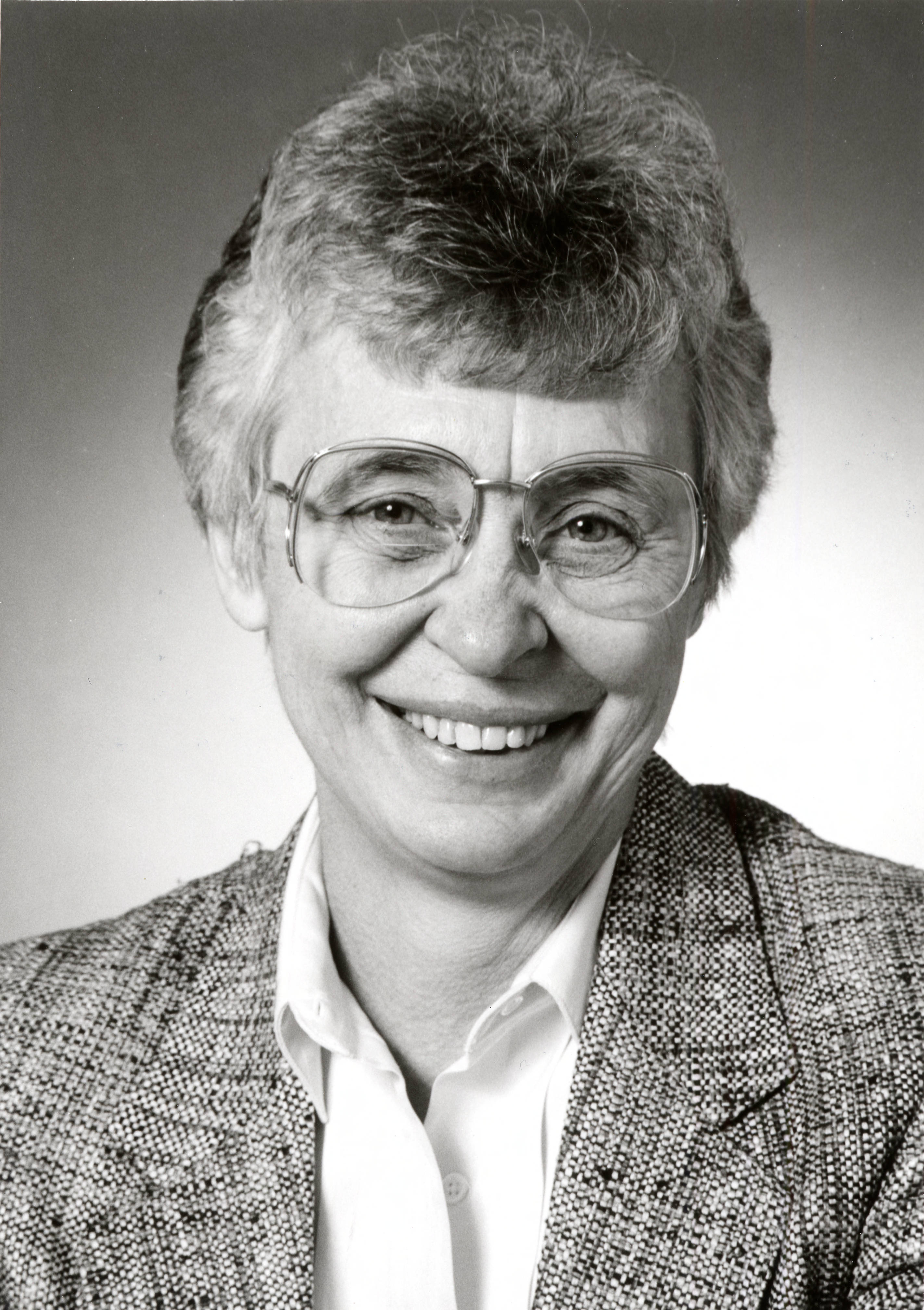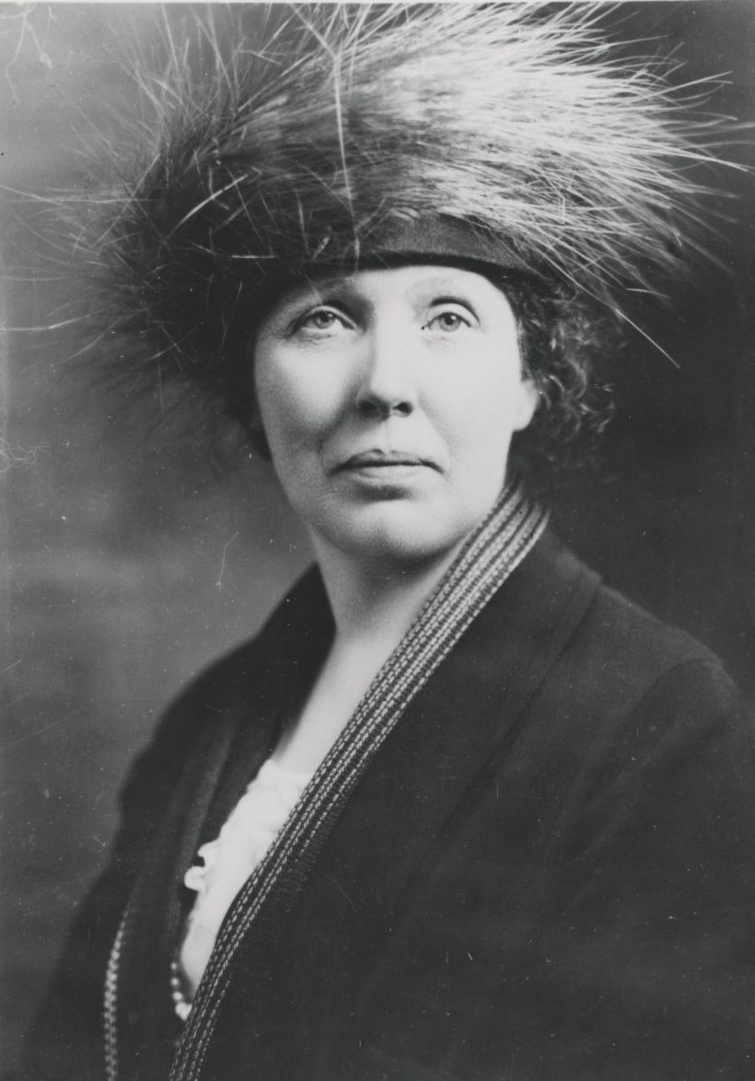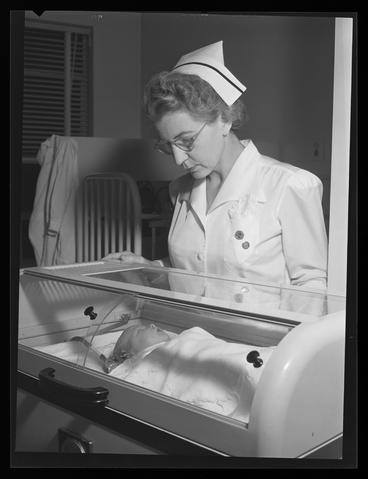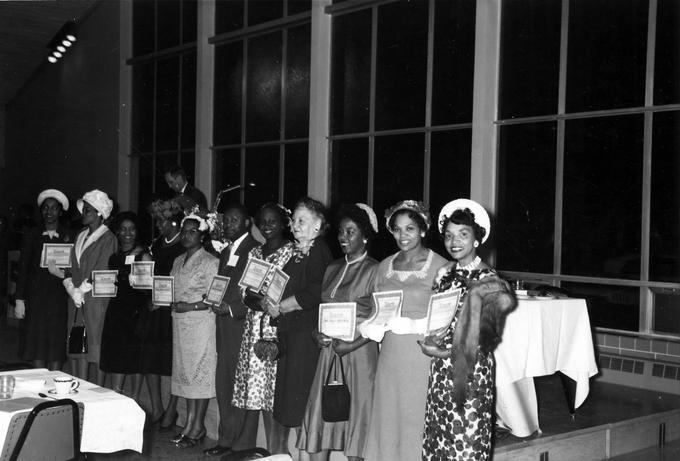Recruited to Oregon by Sadie Orr Dunbar in 1920, Elnora E. Thomson began the public-health nursing program at the University of Oregon’s Portland School of Social Work. A person with energy, talent, focus, and extensive organizational experience in public health, social work, and mental health, Thomson brought new perspective to public health nursing, a newly recognized health care need in Oregon. In a large state with far-flung population centers, providing preventive health care programs was a challenge. Thomson was the right person for the job.
Thomson knew firsthand the need for strong alliances with community leaders, especially women’s groups that would support locally based, innovative activities for vulnerable groups. Having worked on child health with Julia Lathrop (who would become chief of the U.S. Children’s Bureau), Thomson understood the necessity for good relationships with government. She also recently had returned from Italy, where she had established educational programs for nurses who provided healthcare to victims of the 1918 influenza epidemic.
Born into a wealthy Illinois family in 1873, Thomson spent her early life focused on home, family, and a plan to enter Wellesley College. The plan changed, however, and Thomson remained at home as her mother’s caregiver, reading the Wellesley classics curriculum and a psychology curriculum with tutors. On completion of her studies, she questioned how she wanted to spend her life. A positive experience with a “capable nurse” drew her into nursing at the Presbyterian Hospital School of Nursing in Chicago. She completed her nursing education and a course at the Postgraduate School of Civics and Philanthropy in 1909.
During her long career in Oregon, Thomson achieved many successes in the university and the state. Loved by her students and admired by her colleagues, she forged alliances with prominent Portland women who supported and helped her fight for budgets and growth in various programs. She obtained and directed a national grant on child health in Marion County while serving as director of the Far-Western Office of the American Child Health Association in San Francisco. During World War II, she led the recruitment of students who would enter the U.S. Cadet Nurse Corps.
Thomson had a continued interest in the advancement of nursing through professional organizations, and she served at both local and national levels of the American Nurses’ Association; she was elected vice-president and president of the association in 1930-1934. A time of crisis for the nation, the Depression was also a time of crisis for nursing. Among the contentious issues that affected Oregon nursing were the shift to a hospital-based, rather than private-duty, practice; the approval of an eight-hour day; and the reemployment of nurses after the Depression.
Thomson also served as chair of American Nurses Memorial committee that helped form the Florence Nightingale School of Nursing in Bordeaux, France (1934-1940). She died on April 24, 1957, in San Francisco at the age of 83.
-
![]()
Elnora Thomson, R.N. c.1940.
Courtesy Oregon Health & Sciences University Archives
Related Entries
-
![Carol A. Lindeman (1935-)]()
Carol A. Lindeman (1935-)
September 1, 1976, was a red-letter day for the University of Oregon He…
-
![Grace Phelps (1871-1952)]()
Grace Phelps (1871-1952)
In 1909, Grace Phelps began an activist career that would define her si…
-
![Oregon Nurses Association]()
Oregon Nurses Association
The Oregon Nurses Association (ONA) serves as a professional organizati…
-
![Willie Mae Young Hart (1915-2017)]()
Willie Mae Young Hart (1915-2017)
In addition to the community organizing that characterized so many of h…
Map This on the Oregon History WayFinder
The Oregon History Wayfinder is an interactive map that identifies significant places, people, and events in Oregon history.
Further Reading
Flanagan, Lyndia. "1930-1934: Elnora E. Thomson." In One Strong Voice: The Story of American Nurses' Association. Kansas City, Mo: American Nurses' Association, 1976: 450-465.
Gaines, Barbara Conway. A History of the Oregon Health Sciences University School of Nursing, 1910-1995. Portland: Oregon Health & Sciences School of Nursing Alumni Association, 2000.
Schechter, Patricia. “The Labor of Caring: A History of the Oregon Nurses Association.” Oregon Historical Quarterly 8:1 (Spring 2007), 6-33.



